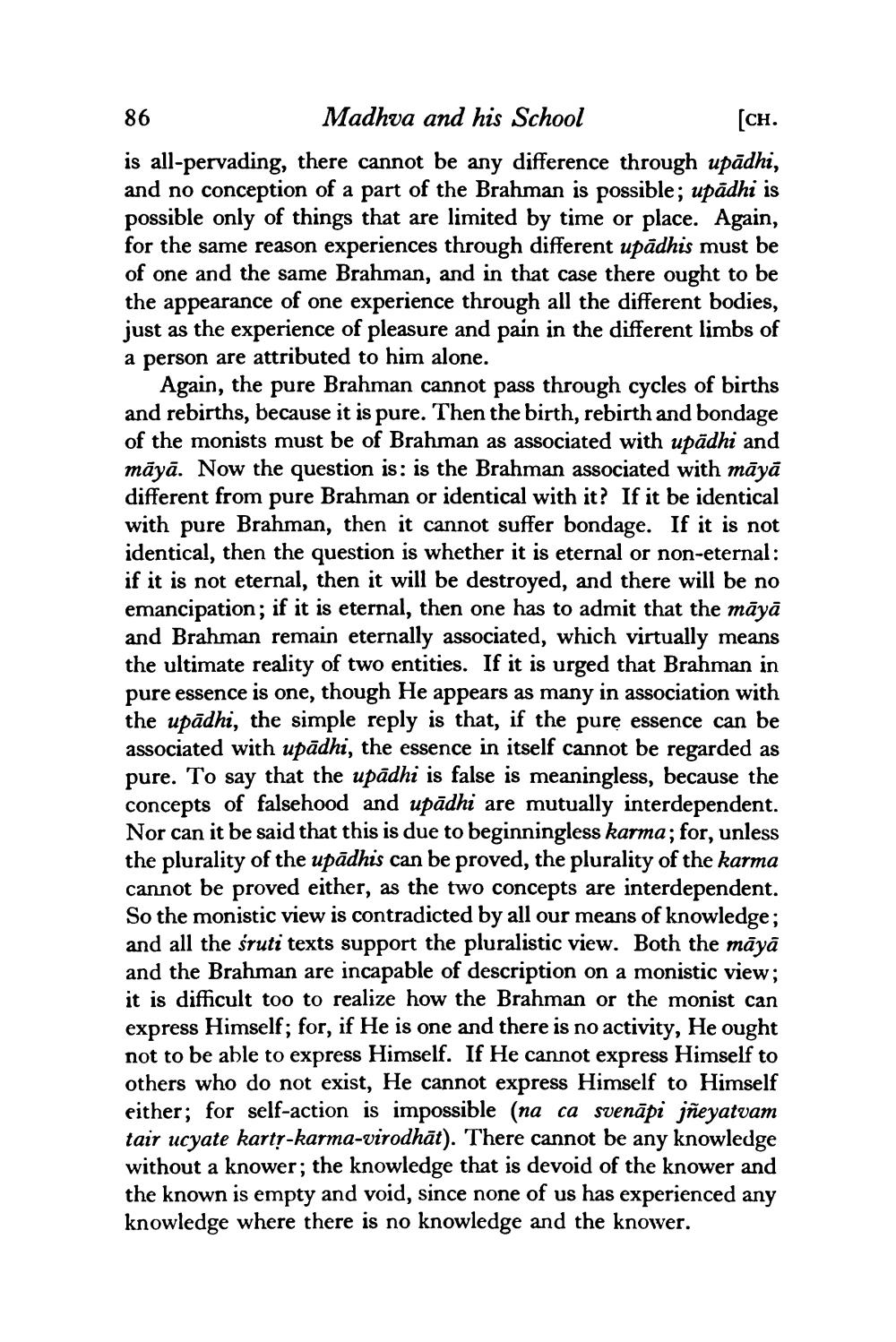________________
86
Madhva and his School
[CH. is all-pervading, there cannot be any difference through upādhi, and no conception of a part of the Brahman is possible; upādhi is possible only of things that are limited by time or place. Again, for the same reason experiences through different upādhis must be of one and the same Brahman, and in that case there ought to be the appearance of one experience through all the different bodies, just as the experience of pleasure and pain in the different limbs of a person are attributed to him alone.
Again, the pure Brahman cannot pass through cycles of births and rebirths, because it is pure. Then the birth, rebirth and bondage of the monists must be of Brahman as associated with upādhi and māyā. Now the question is: is the Brahman associated with māyā different from pure Brahman or identical with it? If it be identical with pure Brahman, then it cannot suffer bondage. If it is not identical, then the question is whether it is eternal or non-eternal: if it is not eternal, then it will be destroyed, and there will be no emancipation; if it is eternal, then one has to admit that the māyā and Brahman remain eternally associated, which virtually means the ultimate reality of two entities. If it is urged that Brahman in pure essence is one, though He appears as many in association with the upādhi, the simple reply is that, if the pure essence can be associated with upādhi, the essence in itself cannot be regarded as pure. To say that the upādhi is false is meaningless, because the concepts of falsehood and upādhi are mutually interdependent. Nor can it be said that this is due to beginningless karma; for, unless the plurality of the upādhis can be proved, the plurality of the karma cannot be proved either, as the two concepts are interdependent. So the monistic view is contradicted by all our means of knowledge; and all the sruti texts support the pluralistic view. Both the māyā and the Brahman are incapable of description on a monistic view; it is difficult too to realize how the Brahman or the monist can express Himself; for, if He is one and there is no activity, He ought not to be able to express Himself. If He cannot express Himself to others who do not exist, He cannot express Himself to Himself either; for self-action is impossible (na ca svenāpi jñeyatvam tair ucyate karty-karma-virodhāt). There cannot be any knowledge without a knower; the knowledge that is devoid of the knower and the known is empty and void, since none of us has experienced any knowledge where there is no knowledge and the knower.




